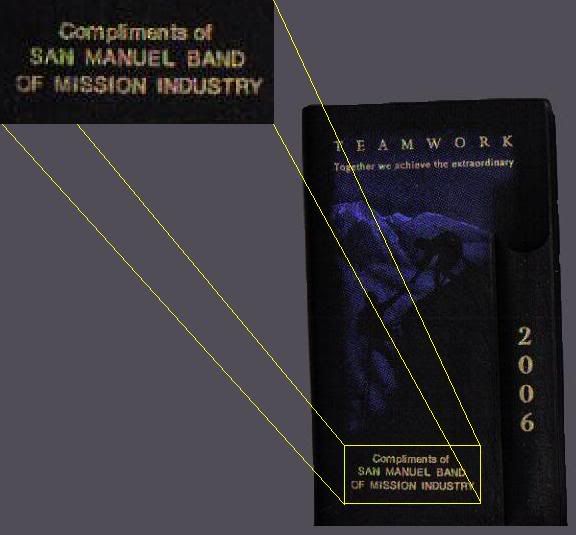A man named Spengler wrote an
article about JK Rowling and the supposed philosophy imbedded within her Harry Potter books. In short, Spengler accuses Rowling of closet narcissism and short-sighted individualism.
It is not only Spengler who says thus. Thousands of pastors, Bill Myers... even the
Pope have spoken out against Harry Potter and his crew, claiming that they teach subtle evil to fragile minds and that Rowling would have us all become egotistical, self-centered maniacs if she had her way.
But that just doesn't flesh out, in my honest opinions.
I posted on this issue once before, but I have more to say in direct response to Spengler's article.
I think Spengler [and all such critics] miss the real point of Rowling's work. Harry may be emotionally aware, and Rowling may spend a lot of time writing about how Harry and his friends emotionally respond to situations. But this serves as a starting point for Rowling's philosophy, not as the end of it.
Take Harry and his battle with the dementors. Harry is instructed by Lupin that, in order to defeat the dementors, he must find the happiest memory that he can to summon his Patronus [Latin for "guardian" or "savior"].
Harry's first attempt is to recall a rather fluffy memory of the first time he flies a broom in order to call on a Patronus. I'll admit, this is a pretty shallow happiness. If this were all that Rowling wrote, then accusations about egotism may well indeed be founded.
But she wrote more.
Such a shallow happiness yields correspondingly shallow results in routing the dementors. Harry is immediately defeated. Lupin instructs Harry to try again, with a deeper and happier memory, and Harry turns to memories of love.
Harry's first attempt accessed the introspective love of a hobby. But for his second try, Harry recalls the faces of Ron and Hermione and the friendship he shares with them. While this love is enough to form a sort of silver mist, it is not enough to bring about a Patronus. Even a reciprocal and mutual love is not enough to vanquish the dementors.
For his third and final attempt, Harry delves even deeper, down to the deepest love which he remembers: the love which Harry's parents showed for him when they laid down their lives to save his. This alone is a powerful enough memory to facilitate a Patronus.
Sure, Harry does go into himself to find strength to defeat dementors. I will give a point to Spengler. But Harry's introspection actually leads him to a source of power which is beyond himself: love.
One more point for Rowling.
It is worth noting that the love powerful enough to overturn despair [for that is what the dementors symbolize] is not a shallow love, like the love of riding a broom. It is not even a mutually beneficial love, like the love which friends show for one another when life is easy.
It is, in the end, only the self-sacrifical love of charity which allows Harry to repel an army of dementors. The love which would give itself away to another is the only force powerful enough to summon a Patronus. His parents gave everything for the one whom they loved... and Harry in turn exhibits that same, selfless love to save others.
Sirius is saved by Harry's love in
The Prisoner of Azkaban in three ways: Harry believes in Sirius' innocence, Harry actually goes to face death in order to protect Sirius from the dementors, and Harry ultimately summons the Patronus to protect Sirius from the kiss of death. I do not believe that egotism is the prevalent philosophy seen here, but something far more mysterious and powerful.
Spengler's claims about narcissism fall short again when I study the nature of loyalty. Loyalty is a powerful force which, by definition, looks outside the man to a higher authority. And it is this force which saves the day in
The Chamber of Secrets. Harry's declaration of loyalty is what brings Fawkes [the Phoenix] and the Sorting Hat to Harry's aid in
The Chamber of Secrets. It is only through their aid that Harry can save Ginny from the baslilsk and the ghost-soul of Voldemort. His loyalty to Dumbledore is what prevents Harry from being used by the Ministry of Magic. It is what moves Dumbledore to tears, and Fawkes to sing. Loyalty is a beautiful and humble power... a power foreign to the egotist, not close at hand.
Finally, Spengler seems to ignore how Rowling deals with death. Anyone who has read through
The Half-Blood Prince knows that Harry has seen death many times. Many of the respectable characters in the books not only meet death, but face it willingly and bravely. It has to be remembered that one of the most important lessons which Dumbledore imparts to Harry is that death is not the worst evil that a man can face--
Hold on. If Rowling's teaching narcissism, then this doesn't make any sense. What could be more horrible to a narcissist than his own death? That would be the end of all which he knows and loves, for it would be the end of himself. It is only the charitable who can face death with bravery, because the charitable know at least something of the divine... they know sacrifice.
No, I think that the obvious Narcissist in the Harry Potter books is Voldemort, and he is to be hated. One of his Death-Eaters even bears the name Narcissa. Voldemort's love is only for the self. His quest is to procure only his immortality, and that at the cost of thousands of lives. Voldemort rips his soul to remain alive forever, not Harry. Voldemort is the friendless one, the one who wants to become like a god. Voldemort is the true Narcissist.
Harry, however, sees Dumbledore as an authority, risks his own life for his friends countless times, devotes himself to a cause greater than the sum of its parts, and will face Voldemort even though Harry may be killed. That is not a narcissist, but a hero.
I don't know. Maybe I'm reading about a different Harry Potter than Spengler and Co., but given that we're not in different universes, I'd say that the final score was something like this:
Rowling-462
Spengler-1
[expecto patronum]
brian



